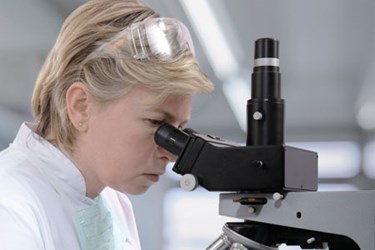Does Drug Discovery Require A Passionate Purposeful Commitment?

By Rob Wright, Chief Editor, Life Science Leader
Follow Me On Twitter @RfwrightLSL

When I sat down to speak with Glenn Gormley, M.D., Ph.D., the focus of an upcoming feature in Life Science Leader magazine, I revealed that my father, like Gormley, was also a trained pediatrician (retired). He too has the initials M.D. and Ph.D. after his name. In addition, I informed Gormley it was not until my late teens when a friend, seeing the pen I was holding with the name (Dr. David L. Wright, M.D., Ph.D.) embossed in bold, block, gold letters asked, “Do people call your father doctor doctor Wright” that I began to realize the full extent of my father’s education. I thought all pediatricians had those same initials after their name — M.D. = medical doctor, and in my naïveté assumed the “P” in Ph.D. stood for pediatrician. “In the spirit of sharing,” Gormley, the senior executive officer and global head of R&D at Daiichi Sankyo said, “I'll tell you, my kids are still figuring out those initials in my name as well. Their father is a doctor, they've seen me as a scientist, and I think like you, often just assume those come hand in hand.” We know that successful drug discovery and development doesn’t require a person to be both a scientist and a physician. However, does it require a passionate and purposeful commitment — a calling if you will?
Pediatrician With A Passionate Purpose
Growing up in the household of a pediatrician during the 70s and 80s, you soon learn no family occasion is so sacred it’s immune from interruption by beeper or phone. My father was often gone before I woke, making hospital rounds prior to heading to his office. Post family dinner usually involved a similar trek of evening rounds. I never questioned this behavior; it just came with the territory of having a pediatrician for a parent. But on the day I was enlightened that my father had not one, but two doctoral degrees, I decided to ask why the son of a carpenter who grew up in rural Minnesota, decided to become a doctor, and specifically, why a pediatrician? After all, I had been in the office and heard the blood-curdling screams of children angling to avoid being given the dreaded shot. This didn’t seem to be a very fun job. But from my father, I learned that helping kids to grow up healthy was very important. So much so, that in addition to completing his M.D. and pediatric residency, he also did a Ph.D. in anatomy. You see, children grow by nearly a third in the first year of life, and continue growing up until the age of 16. As my father had grown up in an era where diseases such as skeletal TB, Polio, and rickets resulted in either death or a life lived in disfigurement, he was determined to make a difference, and he believed having a deep understanding of anatomical growth during the most important years to play was a key role of a life lived in happiness. Perhaps this is why the screams never seemed to faze him when giving a vaccine. He knew that the short discomfort of a needle stick was nothing compared to the pain of being confined to a wheelchair for the rest of your life.
You might be surprised to learn that despite the in-office screams pediatricians endure, as well as being one the lowest-paid specialties, they are some of the MOST SATISFIED with their careers. I know my father had a high degree of job satisfaction. He was living a life filled with purpose. But it certainly didn’t hurt when those in-office screamers would see my father outside of the office, for their attitude was markedly different. Boys and girls of all ages and sizes would smile, wave adamantly, and call, “Hi Dr. Wright!” On those occasions he seemed 10 feet tall, and I marveled at his ability to remember all of their names as he replied in kind. Can this type of passionate purpose be transitioned to drug discovery and development?
Purpose-Driven Drug Discoverer
Early in Dr. Gormley’s career, he worked at the chemistry bench developing drugs for children with leukemia. This experience created the desire to go test those compounds. But it did more than that. “I actually went to medical school because I wanted to follow the compounds into the clinic,” he shared with me. Just as my father studied anatomy to help him be a better pediatrician, Gormley became board certified in pediatrics, endocrinology, and conducted a post doc oncology fellowship, as well as a Ph.D. in Chemistry. Some might think it hokey to say Dr. Gormley was called to find cures for cancer. But I don’t, and neither does his son, Adam Joseph Gormley. In his doctoral dissertation, “Improved Delivery Of Polymer Therapeutics To Prostate Tumors Using Plasmonic Photothermal Therapy,” Adam credits his father’s “dedication to science and treating the sick in a responsible fashion … his passion for developing healthcare to meet the needs of those who need help,” as to why he, is so passionate about his work.
To me it comes as little surprise that Glenn Gormley is heading up one of the hottest oncology pipelines (Daiichi Sankyo) in our industry today. Like my father, Gormley seems to be living a purpose-driven life. Despite the number one purpose of every business being to create revenues, Gormley seems to have been able to strike the proper balance between discovering new cures, having a purpose that transcends revenue creation, and most importantly, places those patients — those children who yell, “Hey Dr. Wright” — at the center. If you want patient-centric drug development, find those who will bring a passionate and purposeful commitment to the process.
